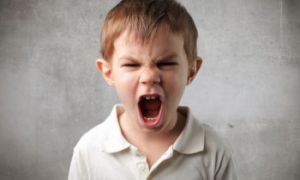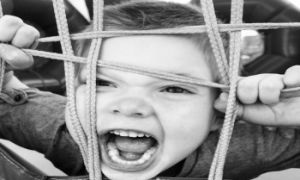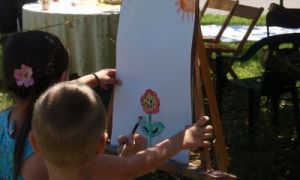

The following is a collection of science-themed “potion recipes” that blend sensory exploration, symbolic meaning, and safe chemical reactions—perfect for World Science Day or any inquiry-based learning moment. Each potion includes: A symbolic name (linked to emotional literacy or global values), a child-safe recipe using common ingredients, and a meaningful intention to spark reflection and storytelling.
Each year on November 10, World Science Day for Peace and Development invites us to reflect on the role of science in building a more inclusive, peaceful, and sustainable world. In early childhood settings, this global observance becomes a beautiful opportunity to nurture curiosity, empathy, and collaborative inquiry.
Shapes are everywhere, in the food we eat, the toys we play with, and the stories we tell. For young children, learning shapes isn’t just about geometry; it’s about noticing patterns, building vocabulary, and connecting with the world around them. These simple, rhythmic rhymes make shape learning fun, memorable, and emotionally engaging.
In early childhood education, stories are more than entertainment; they’re vessels of culture, emotion, and connection. Aboriginal children’s books that explore water, wind, and nature offer rich opportunities to embed Indigenous perspectives, foster environmental awareness, and support holistic development. When paired with the 8 Aboriginal Ways of Learning and the EYLF, these stories become powerful tools for relational, symbolic, and experiential learning.
Play isn’t just fun—it’s foundational. For children aged 3 to 5, games offer rich opportunities to build social skills, emotional regulation, motor coordination, and early literacy and numeracy. Whether you're refreshing your weekly program or designing a themed experience, here are some educator-approved game ideas that blend creativity, inclusion, and developmental intent.
The following setups and experiences are designed to foster fine motor skills, pattern recognition, and joyful engagement with the traditions of the Festival of Lights. Each activity offers opportunities for children to express themselves, explore symbolism, and co-create meaning in inclusive and developmentally appropriate ways.
Celebrating Diwali with toddlers and preschoolers in early childhood settings is a joyful opportunity to foster cultural awareness, sensory exploration, and inclusive belonging. Here are some developmentally appropriate, emotionally intelligent ideas to celebrate Diwali with toddlers and preschoolers.
World Space Week is from 4th - 10th October. To help educators join the global celebration, a variety of free themed activities are available for download. These resources are designed to be engaging, educational, and easy to use across different age groups, making space exploration accessible and fun for all.
World Space Week ( 4th - 10th October) invites us to look up—and within—as we nurture curiosity, imagination, and connection in our youngest learners. While babies and toddlers may not yet grasp the vastness of galaxies or the science of stars, they are deeply attuned to wonder. Through sensory-rich play, gentle storytelling, and emotionally safe exploration, we can offer them a universe of experiences that spark joy and belonging.
These activities are designed to be developmentally appropriate, trauma-informed, and inclusive—centering child voice, educator wellbeing, and the magic of discovery. Whether you're creating a moonlit sensory corner or singing rocket songs with scarves, each moment becomes a launchpad for connection, creativity, and care.
Here’s a curated list of simple, quick, and tasty vegetarian recipes designed with young children in mind—perfect for early learning settings or family meals. These recipes balance nutrition, sensory appeal, and ease of preparation, with options that support cultural inclusion and dietary needs.
 Toddlers have a greater understanding of the world around them by this stage. Their cognitive development (also known as intellectual development and thinking skills) continues… Read More
Toddlers have a greater understanding of the world around them by this stage. Their cognitive development (also known as intellectual development and thinking skills) continues… Read More
 Infants begin to develop trust when parents begin to fulfil their needs. Such as changing an infant's nappy when needed, feeding on request and holding… Read More
Infants begin to develop trust when parents begin to fulfil their needs. Such as changing an infant's nappy when needed, feeding on request and holding… Read More
 Beginning at birth the construction of thought processes, such as memory, problem solving, exploration of objects etc, is an important part of an infant’s cognitive… Read More
Beginning at birth the construction of thought processes, such as memory, problem solving, exploration of objects etc, is an important part of an infant’s cognitive… Read More
 Toddlers want to do more on their own and do not like it when you begin to establish limits on their behaviour. Tantrums can become… Read More
Toddlers want to do more on their own and do not like it when you begin to establish limits on their behaviour. Tantrums can become… Read More
 Your preschooler is now able to focus their attention more accurately and is less influenced by distractions. The intensity of questions increase as your child… Read More
Your preschooler is now able to focus their attention more accurately and is less influenced by distractions. The intensity of questions increase as your child… Read More
 John Dewey is often seen as the proponent of learning by doing – rather than learning by passively receiving. He believed that each child was active,… Read More
John Dewey is often seen as the proponent of learning by doing – rather than learning by passively receiving. He believed that each child was active,… Read More
 Toddler advance and gains new skills in Gross Motor Development milestones achieved throughout earlier years. Co-ordination and challenges that could not be performed before such… Read More
Toddler advance and gains new skills in Gross Motor Development milestones achieved throughout earlier years. Co-ordination and challenges that could not be performed before such… Read More
 Erik Erikson developed a psychosocial theory to understand how we each develop our identities through eight stages of psychosocial development from infancy to adulthood. The… Read More
Erik Erikson developed a psychosocial theory to understand how we each develop our identities through eight stages of psychosocial development from infancy to adulthood. The… Read More
 At this point preschoolers begin to interact effectively with others. Play becomes more innovative and organized and “boyfriend” or “girlfriend” begins to emerge. Preschoolers have… Read More
At this point preschoolers begin to interact effectively with others. Play becomes more innovative and organized and “boyfriend” or “girlfriend” begins to emerge. Preschoolers have… Read More
 From now, babies begin to identify and respond to their own feelings, understanding other's feelings & needs and interact positively with others. A baby's social and… Read More
From now, babies begin to identify and respond to their own feelings, understanding other's feelings & needs and interact positively with others. A baby's social and… Read More

Calming down an angry child is important as it helps to enhance awareness about their...
See more...
Challenging Behaviour is when a child does something that hurts themselves and/or other people.
See more...
Fine motor skills have improved during this point, with increased concentration and patience. These improvements...
See more...© 2009-2025 Aussie Childcare Network Pty Ltd. All Rights Reserved.

